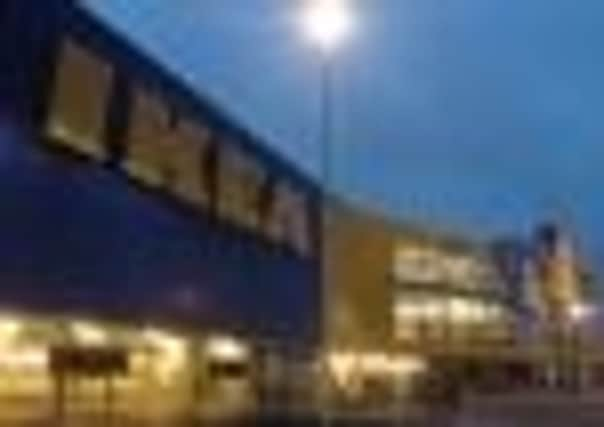Ikea pull sausages after horsemeat traces found


The Swedish company said it was removing the Familjen Dafgard’s Ikea-branded wiener sausages from sale in Britain, France, Spain, Ireland and Portugal after tests.
An Ikea spokeswoman said: “Based on some hundred test results that we have received so far, there are a few indications of horsemeat.
Advertisement
Hide AdAdvertisement
Hide Ad“Together with the Swedish supplier in question we have decided to withdraw from sales also the wiener sausages . . . from that supplier.”
The move comes two days after it withdrew Swedish meatballs from stores across Europe and a handful of countries in Asia and the Caribbean after horse meat was discovered in them by Czech authorities.
But Ikea had said the decision to remove the product affected just one batch as a precaution pending further tests, and meatballs would still be available to buy in its stores.
A total of 760kg of the meatballs were stopped from reaching the shelves. A spokesman said the move did not affect the supply of meatballs to Ikea restaurants in the UK.
Familjen Dafgard is the only Swedish firm so far to confirm undeclared horse in its meat products amid the scandal.
The supplier said it was still trying to establish where its own meat suppliers had sourced the meat in the four batches.
A Swedish government official said Familjen Dafgard buys meat in Sweden and elsewhere in the European Union, although the meat may well originate from third parties outside the union.
Meanwhile, the head of supermarket giant Tesco yesterday vowed to bring meat production “closer to home” and work much more closely with British farmers as part of a raft of changes in response to the scandal.
Advertisement
Hide AdAdvertisement
Hide AdChief executive Philip Clarke has introduced a new testing process so that customers can be sure that what is on the label is in the packet. He also said that from July all chicken meat sold at Tesco’s UK stores will come from British farms.
“The testing regime is intended to ensure that if it is not on the label it is not in the packet, if it is beef, it is beef, and nothing else,” he said. “And that is the most comprehensive testing regime I have ever seen, and it’s happening right now.
“The second thing is we’re going to bring meat production a bit closer to home. We do buy some, particularly for our frozen products, out of Europe, and as we can we’ll bring it closer to home.
“And the third thing is we’re going to have more partnerships, more collaboration with farmers.”
But he would not promise that the changes would not cost customers more: “I hope that it doesn’t mean price increases, but I can’t stand here today and tell you that it won’t. I hope it doesn’t, I’ll work to make sure it doesn’t.”
Mr Clarke said he hoped the changes he indicated were “good signs” of why customers should trust Tesco.
His words came as a poll showed that shoppers said they want more food from British farms on supermarket shelves in the wake of the horsemeat scandal.
More than three-quarters, 78 per cent, of 1,000 people polled for the National Farmers’ Union said supermarkets should sell more food from British farms and 43 per cent said they were more likely to buy traceable food from farms in Britain following the revelations over horsemeat in processed foods.
NFU Scotland president Nigel Miller said: “NFU Scotland looks forward to meeting with Tesco soon to find out exactly how this new approach will affect our members in practice.”